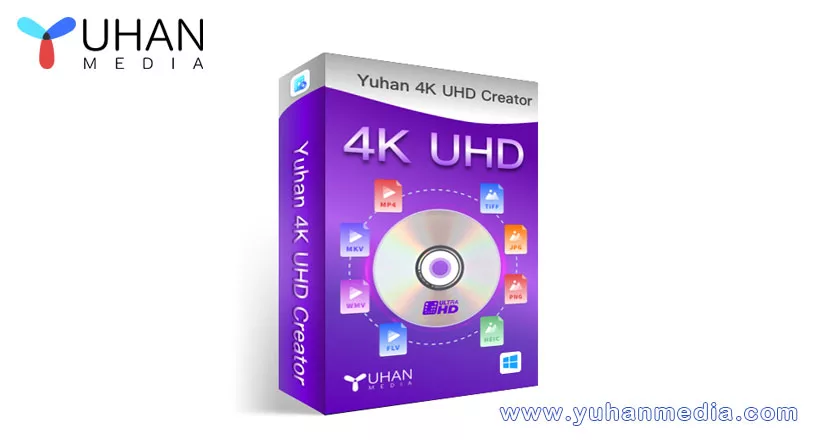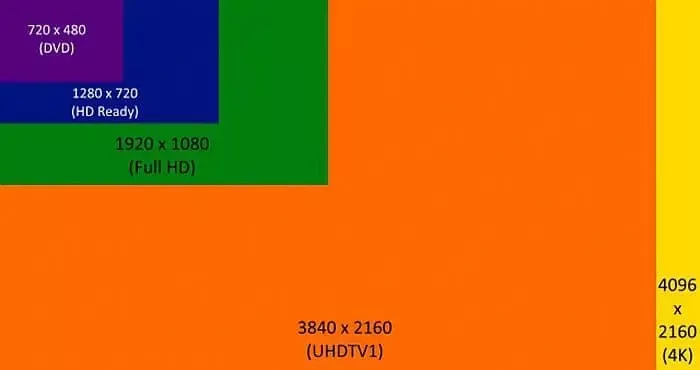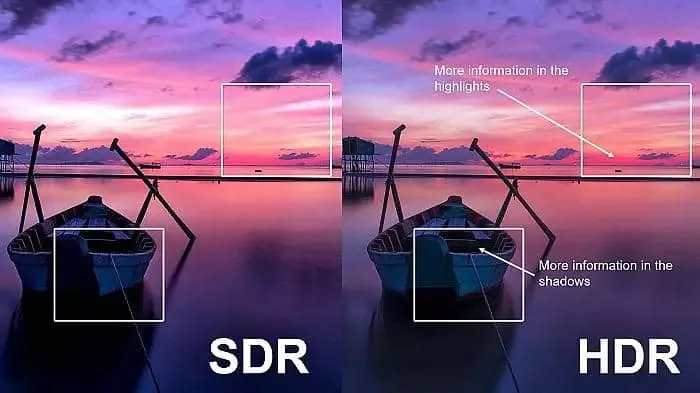
December 13, 2022
- By: Candice / DVD authoring / 0 Comments
Summary: While streaming is clearly more convenient for most of us, anyone who wants superior picture and sound quality needs UHD, which stems from the fact that UHD is a giant technological leap forward. A lot of people are confused by all this new stuff like UHD, 4K, HDR, SDR. To know about all these things, just read the contents of this article. This article will guide you to explore them and recommend a related software.
Yuhan UHD Creator
Convert 200+ video formats and 20+ picture formats to 4K UHD, support IPhone HEIC format, support 4K HEVC 10bit, support hardware acceleration, support DVD menu and chapters.
UHD is a buzzword these days and is gaining its popularity day by day. Besides UHD, you’ve probably heard of HDR, 4K and SDR, as well as UHD Blu-ray. These words must have confused you. What is UHD? What is UHD Blu-ray? Is UHD the same as HDR? If not, what’s the difference between UHD and HDR? Or is there any difference between UHD and 4K? What about SDRs? These questions will surely open your eyes. If you’ve had enough of all these questions, you can dive right in and read this article. This article contains everything you ever wanted to know about these issues.
What is the difference between 4K and UHD?
One way to distinguish them is their different origins. The term 4K originally comes from the Digital Cinema Initiative (DCI), a consortium of film studios that has standardized specifications for the production and digital release of 4K content. 4K refers to resolution, which is measured in pixels. In this case, 4K is 4,096 by 2,160, exactly four times the previous standard for digital editing and projection (2K, or 2,048 by 1,080).
UHD, short for Ultra High Definition, originated as a consumer display and broadcast standard. It’s the next step up from what’s known as Full HD, which is the official name for a display resolution of 1,920 by 1,080. UHD quadruples that resolution to 3,840 by 2,160. It’s not the same as the 4K resolution proposed above – however, in practice you will often see UHD used interchangeably with 4K, whether to describe a TV, source device, accessory or content. So when we say 4K, in most cases it means UHD as well. From the above analysis, we can see that 4K and UHD are not exactly the same, but the difference between them is not that important.
What is the difference between UHD and HDR?
Now that you already know the relationship between 4K and UHD, let us now figure out UHD vs HDR, the difference between UHD and HDR. In fact, UHD and HDR are completely different technical terms. From the above information, you already know that UHD is the abbreviation of Ultra High Definition, which is used for resolution. While not the same as resolution, HDR stands for High Dynamic Range and is an extension of the distance (contrast) between whites and blacks, where bright whites can be captured and/or corrected to make them more intense, but not overpowering the image other parts of the image, this is usually due to overexposure. What does that mean? This means images have more overall detail, a wider range of colors, and look more similar to what the human eye sees than with SDR.
What is the difference between HDR and SDR?
SDR is short for Standard Dynamic Range. It is now a standard for video and cinema displays. Unfortunately, SDR is limited in that it can only represent a fraction of the dynamic range compared to HDR. Thus, HDR preserves detail in scenes where the display’s contrast might be an obstacle. SDRs, on the other hand, lack this capability.
Simply put, HDR allows you to see more details/information and colors in high dynamic range scenes, while SDR does not.
Grouping all these terms, there’s one left – 4K Ultra HD Blu-ray.
4K Ultra HD Blu-ray, as the name suggests, supports 4K Ultra HD (3840 x 2160p) video encoded using the High Efficiency Video Coding (HEVC) standard, also known as H.265. As we all know, streaming is more convenient for us, so those who yearn for the best picture and sound quality need 4K Ultra HD Blu-ray or 4K UHD Blu-ray. Why are 4K UHD Blu-rays so great? The reason comes down to one very simple, but important factor. bit rate. Simply put, the more data you can provide, the better the picture and sound will be. 4K UHD Blu-ray uses 10-bit color depth, which can cover the full spectrum of the Rec.2020 color space. In terms of pixels, that’s about 8.3 million, four times as many as Full HD (1920 x 1080p). By cramming such a huge amount of pixels into a TV screen of the same size, the picture becomes much sharper. How to create 4K UHD Blu-ray has the answer.
In everyday life, it is common to find that your 4K UHD Blu-ray discs are damaged or degraded over time, just like any other type of disc. Maybe after some days, these discs will no longer be usable due to wear or tear. So, have you considered duplicating your UHD videos/movies from their original discs and simultaneously saving them as lossless or compressed ISO files, or burning them onto black BD 50/25 discs? If you happen to have such an idea and are looking for a UHD copy program to backup your 4K Ultra HD Blu-ray movies/videos, then Yuhan UHD Creator will be a good choice.
Video formats like MP4, MKV, AVI are enjoying their popularity these days. Many of us intend to download videos in these formats as well. Also, as you must have heard, UHD offers better images and superior audio quality. If you are looking for a tool to create your own 4K Ultra HD Blu-ray discs, then try Yuhan UHD Creator.
As you can tell from its name, Yuhan UHD Creator is a 4K UHD Blu-ray creation software that can create/burn UHD Blu-ray discs, ISO or UHD folders from multiple videos with different formats. In addition, the software can preserve HDR, HDR10 and Dobly Vision data when creating 4K UHD Blu-ray, and can create four types of 4K UHD Blu-ray discs (BD25, BD50, BD66 and BD100). The converted video will have a resolution of 2160p, which is 4K resolution. Each disc type can be burned to its corresponding blank Blu-ray disc, and you can choose to save 4K UHD Blu-ray as ISO or folder.




Leave A Comment
You must be <a href="https://www.yuhanmedia.net/security365/?redirect_to=https%3A%2F%2Fwww.yuhanmedia.net%2Feverything-you-need-to-know-about-uhd%2F">logged in</a> to post a comment.